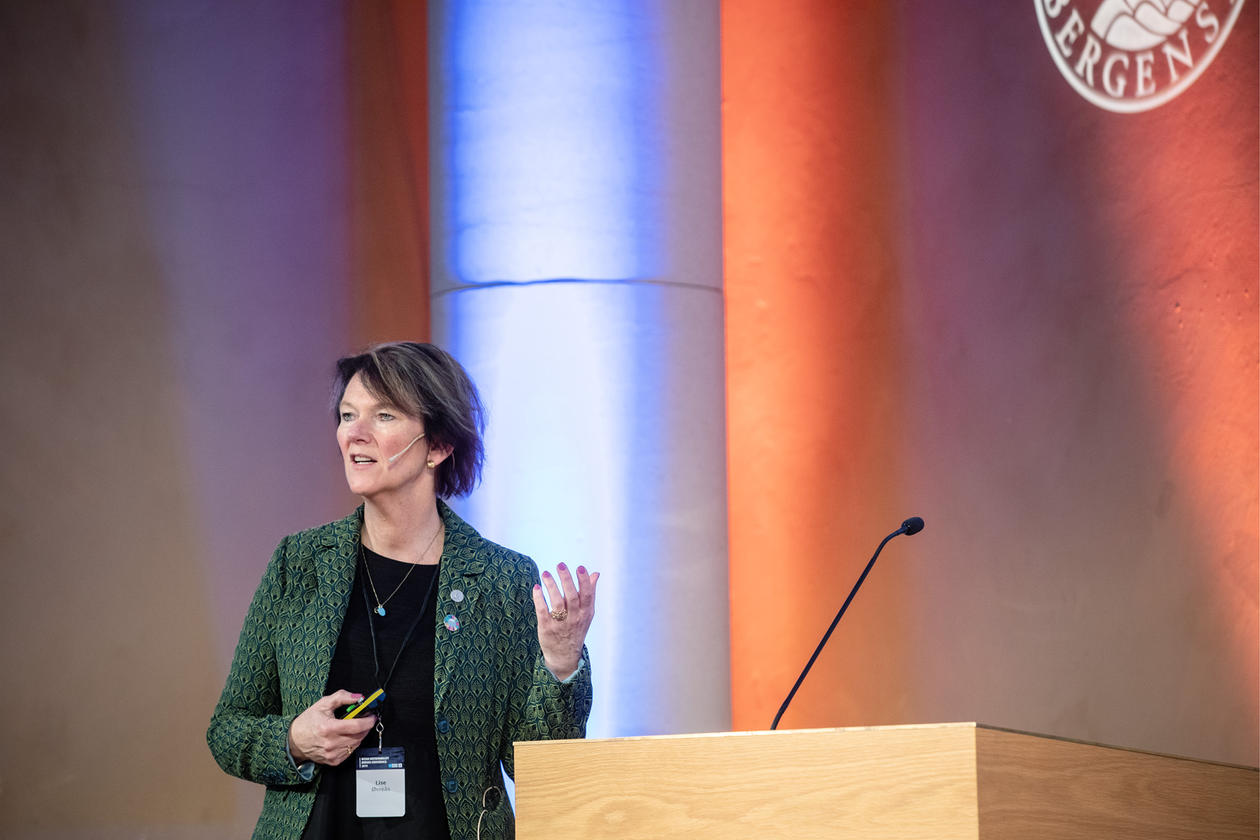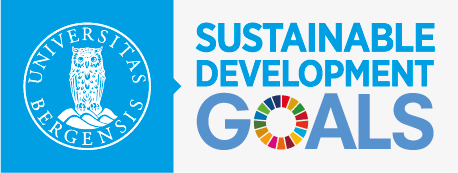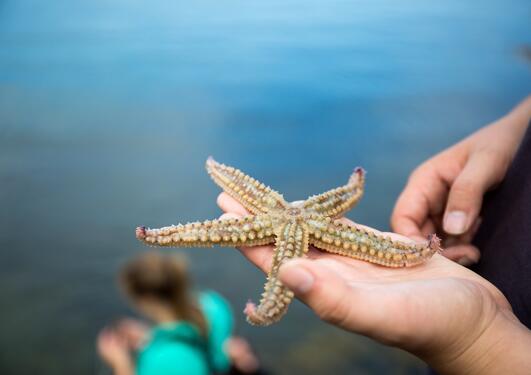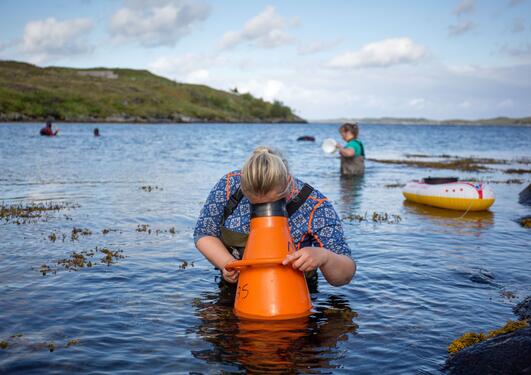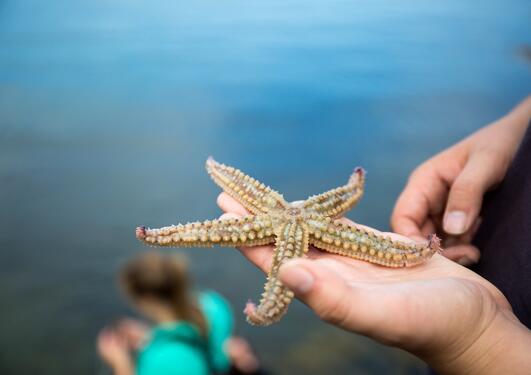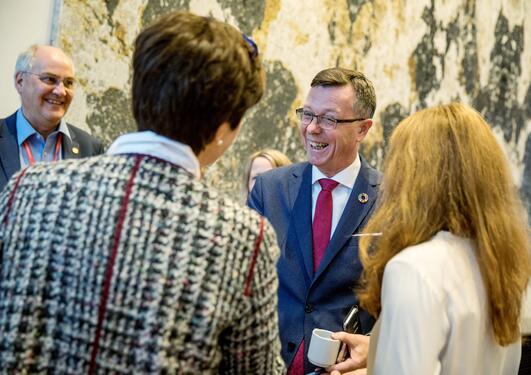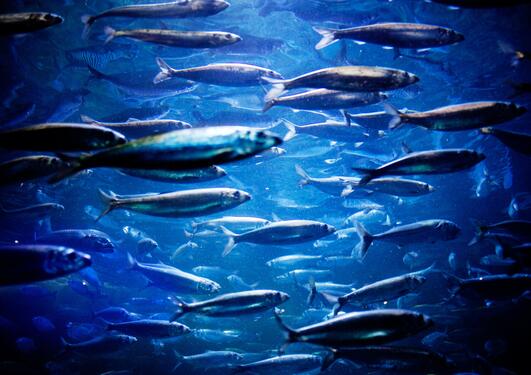Celebrating 2 years as ocean science hub
On UN Day 2018 – 24 October, the University of Bergen was announced as the official UNAI Hub for SDG14 – Life below water. Two years on, we look at what has been achieved during this time.

Main content
With its longstanding ties to the ocean, the University of Bergen has always been a national leader in ocean science. When the university was awarded the status as the Hub institution for SDG14, Life below water, by United Nations Academic Impact (UNAI) in October 2018, the virtual centre Ocean Sustainability Bergen(OSB) was given the role of administering the work on sustainable ocean science at the university and to provide policy-makers with scientific advice.
Two hectic years of science diplomacy
“It has been two hectic years of ocean science diplomacy, with plenty of SDG14-related activities at the university and with our partners,” says OSB’s Scientific Director Lise Øvreås, who is a marine biologist with particular knowledge of marine biodiversity and climate change in the Arctic, “including setting up a SDG14 Cluster consisting of ten world-leading marine universities.”
Øvreås is referring to a parallel appointment to lead on SDG14 for the International Association of Universities (IAU), which is co-located with UNESCO in Paris and has set up a Cluster of SDG-oriented universities for each of the 17 goals.
“It is exciting for us to be working both with UNAI and IAU to engage critically with SDG14 and to be an inspiration for universities and academic institutions globally on ocean science and education,” she says, “and the Sustainable Ocean Series that we produced on behalf of UNAI in June this year is one of the prime examples of how to communicate ocean science and education to a broader audience.”
The ocean in the year of the pandemic
With the COVID-19 pandemic hitting the planet this year, there have been challenges both for teaching and research when universities were closed down. Yet there are great expectations for research to contribute as the world is entering a new era where transformational change will become more important and many solutions will need to be picked from the ocean. This will be one of the main subjects at the second Ocean Sustainability Bergen Conference taking place 11 November 2020.
“At the inaugural conference in October 2019, we had a particular focus on the biodiversity beyond national jurisdiction (BBNJ) negotiations, which were at a crucial stage at that point,” explains Øvreås.
“We also brought the BBNJ topic to the Our Ocean conference in Oslo last October, where we co-hosted the only side event to deal with these important legal issues, which above all will affect sparsely populated ocean nations with large exclusive economic zones. Bringing science-based knowledge to these discussions is an important part of our work as a lead institution on SDG14.”
At the second conference, OSB’s Scientific Director Øvreås says that the overarching topic is to discuss how science, technology and proper management can contribute to a healthy and productive ocean. Treasures from the ocean is the conference title and among many distinguished guests is Ambassador Peter Thomson, the UN General Secretary’s Special Envoy to the Ocean, who will give the annual Ocean Sustainability Bergen Lecture. He is also an honorary doctor at the University of Bergen.
“We are delighted to have Ambassador Thomson join us and to give the key lecture at our second conference. I also look forward to the debate in the opening panel, where we will be discussing how the ocean can provide the food and medicine of the future and how genetic resources from the ocean can be used for the common good,” says Øvreås.
Engaging with the ocean science decade
In 2021, the Decade of Ocean Science for Sustainable Development as initiated by IOC-UNESCO kicks off and the University of Bergen has long been preparing a number of measures to engage with this milestone in global ocean science.
“Recently we applied to the EU’s COFUND programme for a new and interdisciplinary project to create the research leaders for marine sustainability,” says Øvreås, “and if successful we will be able to provide 37 positions for postdoctoral fellows across all faculties to create a truly crosscutting scientific environment for the next generation of ocean scientists.”
This comes in addition to existing SDG-specific courses at the university, including on SDG14. The university is also currently in the process of establishing a MA course on sustainable development as well as integrating critical thinking on the 2030 Agenda into its starting courses for all students.
The University of Bergen was the first partner to sign up to the One Ocean Expedition, an 18 month circumnavigation of the globe on board tall ship Statsraad Lehmkuhl. One Ocean sails from Norway in early autumn 2021 and returns in spring 2023.
